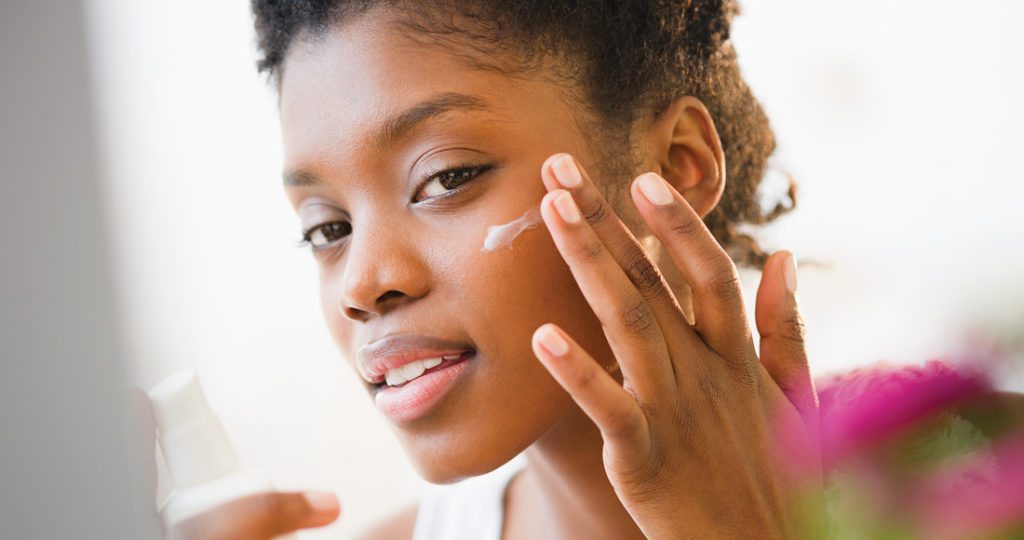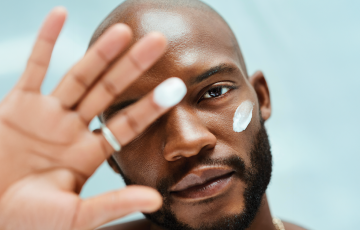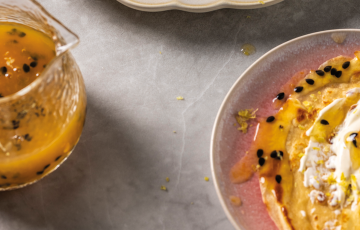Beauty myths: Fact or fiction?

We asked beauty experts to reveal the truth behind some of the most common beauty myths we believe work and why they don’t. You’ll be amazed.
1. PETROLEUM JELLY AND SILICONE LOCK IN MOISTURE
False: They might make your hair feel soft and silky but that’s just temporary. ‘Petroleum products dry out wavy, curly and Afro-ethnic hair,’ warns Cape Town based hairstylist Lorenzo Almano. This will cause tangling, knotting, breakage and more frizz! To combat these problems silicone is often added to products or used on hair alone as a serum. Big no-no, says Almano. ‘Silicone seals moisture out of your hair and the side-effects are long term.’ He adds that the use of heating tools on top of silicone damages your hair even more. Almano advises to stop using silicone and try silicon instead, which is a friendlier waterbased option. Also, add jojoba and castor oil to your winter hair regimen.
2. RINSING WITH VINEGAR MAKES HAIR SHINE
True: Our grandmothers were right. ‘Sealed hair is shiny hair,’ says Almano. Vinegar helps close the hair cuticles, leaving it sleek and shiny. It’s also a great tonic for the scalp, helping to relieve fungal, dry and flaky conditions. Jojoba and castor oils are also great for shine. ‘Jojoba makes a huge difference to shine, elasticity and smoothness, while castor oil penetrates deeply to moisturise the scalp and hair,’ he adds.
3. WEARING BRAIDS OR A WEAVE WILL PROTECT HAIR IN WINTER
True/False: Winter is a great time to give natural hair a break from chemical relaxers and heat styling. While protective styles such as braids and weaves can give your hair a chance to recover, they can also do the opposite. ‘Hair is often braided too tightly and this could result in permanent hair loss and damage,’ warns Almano. He adds that irregular shampooing can cause product build-up that clogs the hair follicles and inhibits growth, so he recommends shampooing once or twice a week to keep the scalp clean. Also use a moisturising spray daily.
4. THERE’S NO NEED TO USE SUNBLOCK ON DARK SKINS, ESPECIALLY IN WINTER
False: Dark skin is prone to pigmentation caused by the sun. If you are using products to control pigmentation and lighten dark marks then your skin will be extra-sensitive to the sun’s UV rays, even in winter. ‘Using a basic SPF15 will help protect your skin from UV rays which penetrate through clouds,’ advises KZN based skin therapist Prashna Harie.
5. OILY SKIN HAS ENOUGH OIL TO KEEP IT MOIST THROUGH THE WINTER
False: If you have an oily skin you might have been using oil-stripping products throughout summer to keep your skin matte. ‘Your skin is probably dehydrated and will produce more oil, which could result in breakouts and blocked pores,’ says Cape Town-based somatologist Terri-Ann Feris (somatology is the study of the human body). Using oil-stripping products in winter will leave your skin stuck in this vicious cycle. ‘Oily skin actually needs the nourishment of plant oils to feed and balance it. Jojoba is an excellent oil – it will dissolve excess oil on your skin without blocking your pores,’ she says.
WHAT’S THE DIFFERENCE?
Silicon vs Silicone
Silicon is a natural mineral that helps promote healthy skin, hair, teeth and bones as well as flexible joints. Beauty products containing silicon help tone and tighten the skin and promote growth of thick, shiny hair.
Silicone is a synthetic polymer that can make skin and hair seem healthy because it ‘fills in’ flaws. It seals your skin and hair from moisture, actually drying them out even more.
Related articles

Latest Jet club magazine
We’ve got the latest trends, exciting prizes and exclusive savings just for you!
Jet Club will not pass your details to anyone else. By clicking the subscribe button you confirm you have read and agree to the Jet Club Terms and conditions and Jet Club Privacy Statement.
Subscribe

